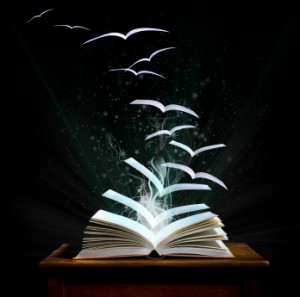
This weekend, the New York Times published an editorial entitled, “The Art of Listening” by Henning Mankell. The author discusses his move to Africa as a method to “see” the world beyond his own European perspective, and the editorial reads a bit like a travelogue. Time seems slower. Stories are not linear. Listening becomes more important than the sheer drive from knowledge. The not-so-embedded critique of “Western” culture comes to the forefront. While I don’t entirely disagree with Mankell about the hegemony of Europe or America or the sped up version of contemporary tech culture, these romantic narratives make me a bit twitchy. The idealization, the romanticizing, of another place dissolves complexities and messy realities.
Mankell argues that “we” (I assume he means those of us in the first world or maybe just white folks of European descent or maybe he likes the royal “we”) have lost the ability to listen. “We” cannot abide silence, and we rush to fill it up with as many words as possible. “We” talk but don’t listen. Chatter, chatter, chatter.
Mankell offers this critique of “us” to present the lessons he has learned from 25 years in Africa and as a vehicle to promote African literature as the “new” literature for global consumption. He writes:
If we are capable of listening, we’re going to discover that many African narratives have completely different structures than we’re used to. I over-simplify, of course. Yet everybody knows that there is truth in what I’m saying: Western literature is normally linear; it proceeds from beginning to end without major digressions in space or time.
That’s not the case in Africa. Here, instead of linear narrative, there is unrestrained and exuberant storytelling that skips back and forth in time and blends together past and present. Someone who may have died long ago can intervene without any fuss in a conversation between two people who are very much alive. Just as an example. (Emphasis mine.)
African story telling offers something different: exuberance, circularity and conversations with the dead. The African context does offer something different and unique, but the sharp contrast appears because of a generalized vision of linear storytelling of a generalized West. Tidiness in narrative is as much about how we envision the function of stories as it is the actual story. Perhaps, the critique works better if it is about the conventions of storytelling not the stories. What are the differences in storytelling praxis? How do we train our narrators? What makes us narrate certain stories in certain ways? (If you can’t tell already, I have a thing about narration these days.)
The circuitous narrative that Mankell describes is one I recognize and embrace as a part of my white Southern upbringing. Stories moved forward and backward. They involved a few people or many. Context mattered. Lessons were learned or not. There was always reckoning with the dead, the broken, the lost or the tragic. Humor was key, even in the most inappropriate moments. Stories became a way to describe where we were, why we were there, who stayed, who had left us, why they had left us, what that meant for us, how we fit into a lineage or how we didn’t fit. These stories were sometimes linear, but they were most often convoluted and confusing even when they were supposed to bring clarity and give meaning. Sometimes they were blatantly false, but they were good stories. I emerged from a line of storytellers (as well as stoics who avoided certain stories), so I guess I am wholly unsurprised at my career choice. Part of being in this lineage was the ability that Mankell uplifts: listening. To make sense, to tell a better story, one had to embrace the previous story. To listen to the details, add flourish and performance, and to be aware that those gone are never really gone as historians attest.
So, all-in-all, I like Mankell’s description of humans as Homo narrans, storytelling persons, as opposed to Homo sapiens. He writes:
It struck me as I listened to those two men that a truer nomination for our species than Homo sapiens might be Homo narrans, the storytelling person. What differentiates us from animals is the fact that we can listen to other people’s dreams, fears, joys, sorrows, desires and defeats — and they in turn can listen to ours.
Many people make the mistake of confusing information with knowledge. They are not the same thing. Knowledge involves the interpretation of information. Knowledge involves listening.